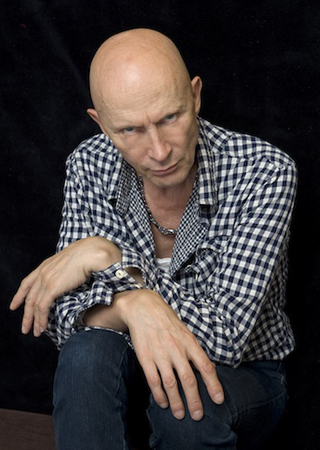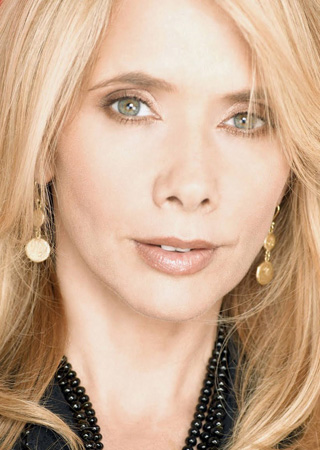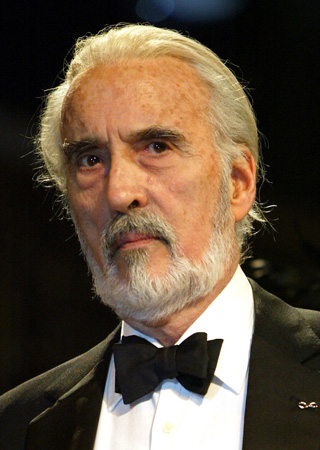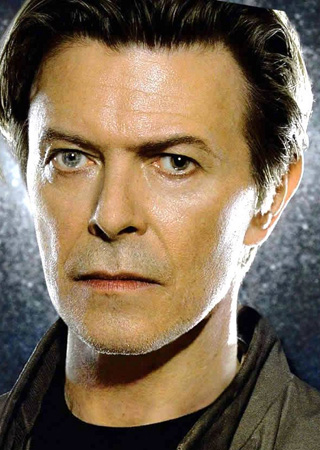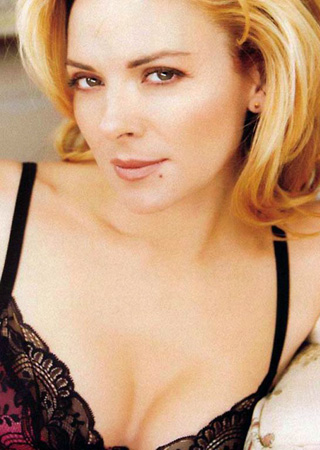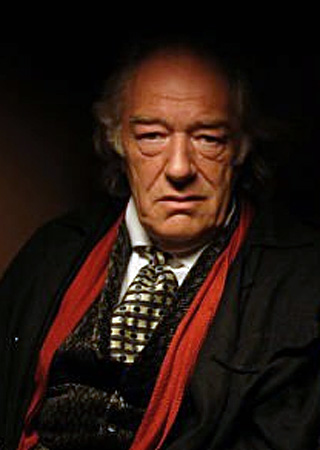Patricia Arquette: Rainbow Worrier (Time Out, 1991)
So okay, I admit, I had a bit of a crush on Rosanna Arquette. Sweet, scatty, funny, a singularly open and volatile actress. The interview went so well that she kept waving away the film PR when she knocked at the door. Our hour-long interview lasted for nearly two hours, leaving the guy from the Telegraph with just ten minutes – they never did run his interview. The quote at the end, about having a baby with or without Peter Gabriel, was picked up in all the tabloids. I always wondered, slightly guiltily, if it hastened their break-up.
Unlike actors, actresses come conveniently labelled: Holly Hunter is feisty, Sigourney Weaver is tough; Jamie Lee Curtis has a ‘Perfect’ body, Meryl Streep has a thousand accents; Jane Fonda is political, Sally Field is, well, just normal. But they could all do a lot worse. In Rosanna Arquette’s case, ever since ‘Desperately Seeking Susan’ she’s been saddled with a single adjective: ‘kooky’. Here’s why. ‘I hated that Vogue article on me,’ she rants, almost as soon as we shake hands. ‘I talked a lot about clothes because I was asked a lot of questions about clothes. That’s what the magazine is, right? And I was in a kooky mood so I was…’ Here she pauses, searching unsuccessfully for an adequate description of the unearthly sound she makes when amused… ‘laughing, and it just sounded so stupid. Like an air-head who doesn’t have much to say except about clothes and Prince, which is not what the conversation was about at all. And it just made me sick. (Sudden rush of gulping laughter, like a flock of seagulls taking flight, then, during an intake of breath) So there.’ She sits back in her armchair, back stiff, straight and proper, hands pressed together flat on her lap, and suddenly adopts a voice like Minnie Mouse on helium: ‘Right, now that I’ve got that off my chest…’ And we’re off and running.
Rosanna Arquette is the conversational equivalent of a fairground: full of swoops and whoops and unexpected turns, excitement and candy-floss dished up in equal measure. The overall effect is exhilarating, exhausting, more performance art than speech. And that laugh… She claims to laugh when she’s nervous, in which case she’s the most nervous person I ever met. But one thing she definitely is not is an air-head.
Thirty years old last August, she has already made ten TV movies — including the Gary Gilmore bio-pic ‘The Executioner’s Song’, and now ‘Separation’, with David Suchet, for the BBC — and 18 feature films, including ‘Silverado’, ‘After Hours’, ‘Baby It’s You’, ‘The Big Blue’, ‘New York Stories’ and now the British-made ‘Black Rainbow’. She is a consummate comedienne, and the ski-jump nose that saves her Modigliani face from being too beautiful also gives it humour. Lacking any Hollywood pretensions, she is honest to a fault. And if the kookiness does sometimes shine through, blame it on the ’60s.
Born in 1959 to a family of actors (her brother Alexis and sister Patricia also keep up the tradition), she was brought up on a commune to several different religions: her mother was Jewish, her father Catholic, but Eastern faiths were in vogue. She went to Woodstock, of course, to free schools, to peace marches. ‘I remember from a child’s eyes what that feeling was, a loving, wonderful time, young people being so… that Vietnam was a really wrong thing, so they marched, they fought, some of them died. That kind of determination, that kind of belief in what is right is dead now in America.
‘I remember marching with Martin Luther King in the Chicago peace march. When he was killed, I was watching TV, and they cut “The Flying Nun” to announce Martin Luther King had been killed. I didn’t know what that meant, what death was and being shot in the head, but I knew who this man was. And my mom just pounding the floor going “Motherfuckers!” ‘
The Nelson Mandela benefit was just like old times. ‘I called my mom up going “Mom, Martin Luther King and Mandela in my lifetime!” She said America was the only country in the world not to televise the concert and his speech. Isn’t that shocking? It’s embarrassing to be an American right now.
‘But wasn’t it wild when it started hailing? First it was, like, weather warfare, I know it — but then it was like “wait, this is really incredible”. You know how when big things are going to happen and the world is changing, something — like in the Bible they say a storm happens (suppressed giggles) or a volcano… it hailed, it hailed on these people right before his speech. It was a really good feeling.
‘One thing that was great was he came backstage to speak to the musicians, and so for about half an hour all the guys did this improvisation — (breaking into song) ‘Mandela!’ Simple Minds, Peter [Gabriel, her boyfriend], just everybody all did this dancing and I stood up on this table with my video camera and got great shots like this (mimes close-up). It was so moving. I played it back to hear (sniffles) everybody was crying.’
Fed up with the cynicism of America in general and Hollywood in particular, Arquette has moved semi-permanently to England, and lives near Bath in Peter Gabriel’s mansion, flotation tank and all. She plans to produce a movie about the young homeless, based in Scotland, to replace the one that got lost in Hollywood. ‘I had a project for four years about homeless kids on the streets of Los Angeles, it was a real passion for me. I started out going with food and blankets, money (in tone of loathing), you know, just giving away. Then I had a script written, and Universal were going to do it, they even said part of the money would go to the homeless. Sigh. Then they say (whiny voice) “Why don’t we get Tom Cruise? Why don’t we get Sean Penn?” It just got screwed up. I lost it in the system.’
In truth, she has never played Hollywood’s games, refusing the staple love-interest parts in big-budget films, which she dismisses contemptuously as ‘cartoons’. ‘It was never really my intention to become a quote “big” movie star, and I am not. Having that gives you the power to do what you want, but I also think it’s a prison. So I try and do a balancing act between those and making the films that I really like…’ Suddenly the laughter rush comes on again like steam from a kettle, forcing the words out in a single rising gasp … ‘WHICHISTHEMOVIESNOBODYWANTSTOSEE!!!’
She spent four months preparing for Lawrence Kasdan’s 1985 western ‘Silverado’, only to see the bulk of her role end up on the cutting-room floor. ‘Nobody’s Fool’, one of her favourites, was dumped on by critics and public alike. But ‘Desperately Seeking Susan’ was the cruellest cut of all.
‘It had a woman writer, woman director, women producers. It was the first of its kind; the men were just love interests. The end of “Desperately Seeking Susan”, which we shot, and was not used, is the two girls on camels in Egypt, with pyramids in the background; we’ve run off together, with the money, and left the guys. Isn’t that brilliant? Wasn’t that the best? The Hollywood ending — (affects Brooklyn ten-pin-bowling accent) they wanted them living happily ever after wit’ da guys.’
She thought it would be safe to go back into the water with ‘The Big Blue’: a European film, and a part which Luc Besson consulted her on four years ago and wrote with her in mind. Even that ended up a heavily cut ‘cartoon’. ‘I was so unhappy with the way it turned out. But I know Luc. Even with Adjani in “Subway” — yeah, Isabelle Adjani — she was just the girl in the movie. So he kind of used me in that way (back to her bimbo Minnie Mouse on helium voice): “I just want to have a bay-bee!” I see that scene and I want to vomit.’
Assassin’s Target
An honourable exception in her book is Martin Scorsese with whom, since the screwball comedy ‘After Hours’, she has formed something of a mutual appreciation society. It was he who suggested, while they were filming ‘New York Stories’, that she read the script for Mike Hodges’s supernatural/ecological thriller ‘Black Rainbow’. Straight after filming she flew directly to North Carolina, dyed her hair and went to work.
The result is her strongest dramatic role to date. She plays Martha Travis, a psychic who sees the face of an assassin in a trance, and so becomes a target herself. That’s the thriller element. Then there’s the journalist (Tom Hulce), representing the audience, who slowly comes to believe in the supernatural as both Arquette and Mike Hodges would have have us believe; a moving sub-plot involving a whisky-swilling father Jason Robards) exploiting her powers for financial gain; and an ecological sub-text. Both the film and her performance are admirably believable and understated — something which was not achieved without a struggle.
She had prepared for ‘Black Rainbow’ with a psychic, Laura Day, and acting coach, Susan Batson — long nocturnal sessions after shooting wrapped for the day on ‘New York Stories’. Her new director was unaware of this, and the result was a nearly disastrous falling-out over the key trance scene. ‘She was emoting all over the place,’ remembers Mike Hodges. ‘It was awful. In the end there wasn’t a single frame I could use. I went to see her the next day, in her Winnebago trailer. I was dreading it. She took one look at me and said “You want to reshoot the scene.” There was a fearful row, the Winnebago was going up and down, and I just said “think about it”. I stood outside, and had someone call the producer — I mean, my God, this could be the big one, the end of the film — but producers are like policemen, never around when you need them. It’s lucky he wasn’t, in fact, because then I went back in and we sorted things out.’
‘I was really upset,’ says Arquette of the incident. ‘I said “Man, you English people.” I said “You’re so fucking afraid, so afraid of emotion, and feelings!” It’s like (she mimes pouring tea aristocratically) have a cup of tea, you’re upset here, drink a cup of tea. And then I said okay, I’m going to trust you, I’m going to trust my director, and we did it. And boy was he right. He was so, so right. Thank God I trusted him. But that’s creative conflict; you have to (slap, slap, slap with her hands) butt heads, to make things churn, to make things real.’
Sex was another source of creative conflict. Arquette’s character, Martha, picks up strangers — partly to ease her solitude after years on the road with her pseudo-religious psychic stage show, but mostly, one suspects, to get back at the father who relies on the show for whisky money. There’s one moment that says it all: Arquette inviting the bell-boy into her room and standing by the door, joyless and impassive, fists clenched by her side. Sex as a weapon. Arquette wanted to imply an incestuous relationship between Martha and the drunken father. ‘I thought it was really important to put that in there, and Mike was going (throws up her hands defensively): “Woah! Okay!” Hee hee! I said Mike, you have got it in the script, it is here. But he wouldn’t admit it.’ Hodges disagrees: ‘That was always there, I just didn’t want it to overtip the film.’
As for the black lingerie Martha wears underneath her pure white robes, Arquette says: ‘I wanted her to be this weird girl,. so that when she’s by herself she orders from catalogues; and it’s got to be like black, lace. I mean, she makes love with strangers — no, she doesn’t make love, she fucks strangers.’ The naughty underwear was her idea. A surprising admission — ever since Blake Edwards made her take off her shirt for a walk-on part in ‘SOB’, Arquette has been sensitive to the danger of directors casting not her but her body, and has kept the nipple-count in her films low. But then, as Mike Hodges reveals (with a trace of ruefulness?), the original script called not for lingerie, but nudity.
John Milius resurrected the conflict recently, shooting her in Hawaii for the forthcoming war drama ‘Flight of the Intruder’. ‘There’s a scene on the beach, and they really wanted me to wear a bikini. I said, “Ugh, I hate my body, I don’t want to wear a bikini, I just don’t feel comfortable.” I was like really upset, and John’s got his cigar, laughing, cracking up. He’s great though, very funny. So I ended up wearing a bathing suit. And that’s why I decided to work in Europe and do this BBC play.’
Madness In Her Method
The BBC play is ‘Separation’, an emotional play about the relationship, conducted almost entirely over the telephone, between a crippled actress and a fat, unsociable and agoraphobic playwright. It should be an interesting pairing: Arquette, from the American cinematic method-acting school, and the classically trained David Suchet. ‘We got on great,’ says Arquette, ‘because it was like total opposites, we come from totally different training, yet we were really able to work well together. I know a lot of people who will put down the English actors but for me, the training here, with the stage, is it. I feel like some actors in America don’t get the real spine of training, it’s always from the gut; which you can rely on only so much.
‘Method-acting means taking things from your own life that have nothing really to do with the character. It’s very dangerous to take your own pain, because then it’s like primal scream therapy on film, and I find that very self-indulgent, I really do.’
It’s true Arquette could do with more discipline — she’s now taking voice lessons, for instance — and she couldn’t have turned in such a well-judged performance as ‘Black Rainbow’ three years ago. Nevertheless, there was a splendid madness to her Method. One of Arquette’s favourite song lyrics, by Joni Mitchell, is ‘laughing and crying, you know it’s the same release’. She shifts through laughter, sobs, hysterical rage and back to laughter in one breath. And that’s just in conversation!
‘The Executioner’s Song’, the four-hour TV bio-pic about Gary Gilmore, gave notice in 1982 that the small screen would not contain her for long. The doomed amour fou between her earthy, sexy, impulsive teen tearaway and Tommy Lee Jones’s earthy, sexy, impulsive murderer remains one of her finest works, as well as an apotheosis of Method. ‘Tommy Lee Jones really scared the kids, on and off the set. There’s a scene where he throws me out of the car, and I scream “I hate you I hate you!” That was not in the script, I just improvised it; the kids were really crying, I fell hard on my shoulder, but I was trying to protect them, making sure they didn’t fall. It was horrible, I would never put my kids through that. They didn’t know this was a movie, they were really scared.
‘The child laws now are really strict. But people like Jackie Cooper, Judy Garland, they used to do horrible things to make them cry like saying (sinister whisper): “Your mommy’s dead, she’s never coming back.” And just as they were about to burst into tears, the director would say “action!”. Isn’t that horrible? That’s Method acting! You take a situation that would really cause you grief and pain, to psyche you up. Now, I take a little bit of this and a little bit of that… Ambrosia acting.’
It seems to agree with her. Apart from all the films mentioned above, she also has an Australian movie, ‘Wendy Cracked A Walnut’, in the can and awaiting release; and ‘Sweet Revenge’, in which she co-stars with John Sessions. As for the more distant future, her chief plan is to become a mother. ‘That’s the most creative thing. I can’t wait. Oh, please. I’m gonna have a baby in the next couple of years — with or without my present boyfriend!’
And she lets rip with the most prodigious laugh of the day.


